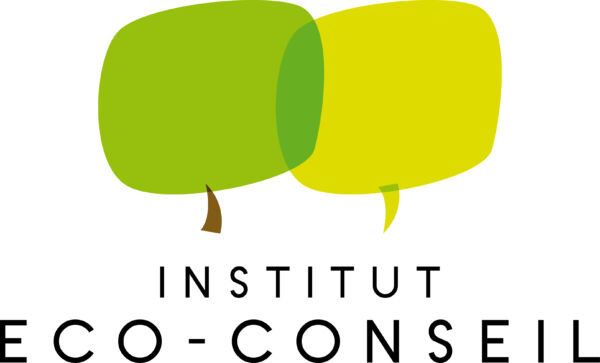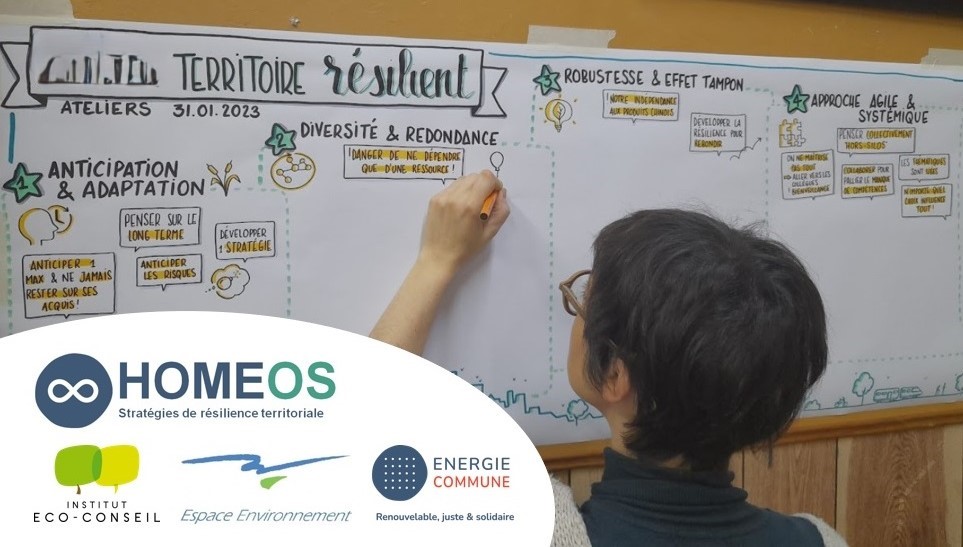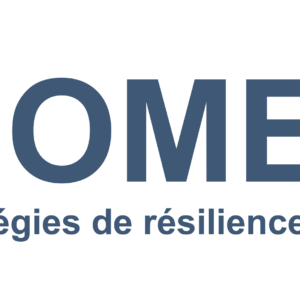HOMEOS – Strategies for regional resilience
Institut Eco-Conseil contributes to increasing the capacity for action and the potential for socio-ecological transformation of people, organisations and regions, at local, regional and international levels.


Overview of the project

More and more signals and events are prompting territories to prepare for various risks and disruptions to normality in environmental conditions, supply chains and service provision, with greater or lesser impacts on infrastructure, economic exchanges, social relations, health and well-being. However, many questions remain. How can we assess our territory’s degree of resilience in the face of possible shocks, and analyse the situation without becoming too frightened or discouraged? What changes should be introduced into today’s regional action to enable it to continue to ensure people’s security of existence and meet their current and future needs?
It is by thinking collectively about regional in terms of resilience that we can succeed in facing up to these interrelated issues and set in motion, at local level, the dynamics of transformation that will enable them to meet the challenges that the future holds in store for them. But how can this concept impact the social, economic and environmental realities of regions, and what are the concrete consequences and opportunities for their transformation? How can it be translated into a local strategy and concrete actions?
The Institut Eco-Conseil, Energie Commune and Espace Environnement have joined forces to develop tools and methodologies for Walloon regions, with five of them and with the support of Wallonia, to answer these questions and overcome the apprehensions linked to their complexity. The aim is to provide Walloon regions with the tools they need to collectively think about and implement the resilience of their territories.
The HOMEOS project aims to provide Walloon territories with the tools they need to draw up and implement regional resilience strategies.
Ongoing research
01/01/2022 - project still in progress
Five pilot areas were supported in :
– Mobilising stakeholders and creating a regional dynamic;
– Drawing up a shared diagnosis of strengths and vulnerabilities in different areas of resilience;
– Clarification, with the population and local players, of the issues at stake and identification of the necessary economic, ecological, social, democratic and cultural transformations to be initiated;
– Collective intelligence to identify levers for action based on best practices;
– Drawing up an analysis grid to define priorities for action to be integrated into regional strategies.
To help you ask the right questions in a systemic approach to regional development, we have developed a framing and objectification tool. Presented in the form of a spreadsheet, it draws up a 360° portrait/diagnosis of the resilience of a borough or group of boroughs through the compilation, analysis and graphic presentation of a series of statistical data specific to the area under study. It provides an initial assessment of the area’s current capacity to cover basic human needs and its vulnerability to various systemic risks.
This tool is accompanied by a guide for the development of territorial resilience strategies, as well as a collection of levers for action.
The first studies and experiments were financed by Wallonia.
organisation
Since 1989, Institut Eco-Conseil has been helping to increase the capacity for action and the potential for socio-ecological transformation of people, organisations and regions, on a local, regional and international scale. We help build a positive, sustainable future by training, equipping and supporting professionals in the fields of the environment, sustainable development and the social and ecological transition.

